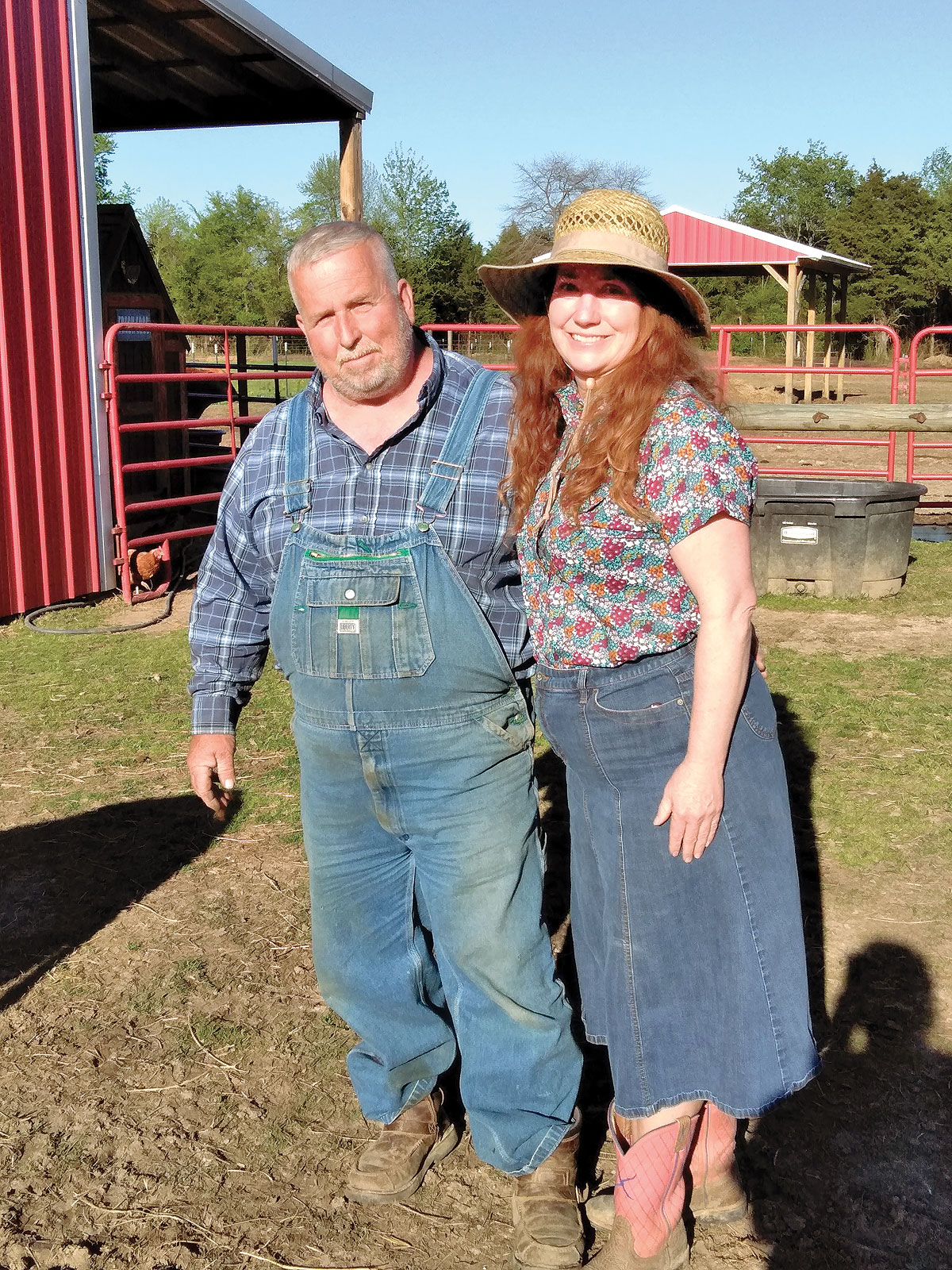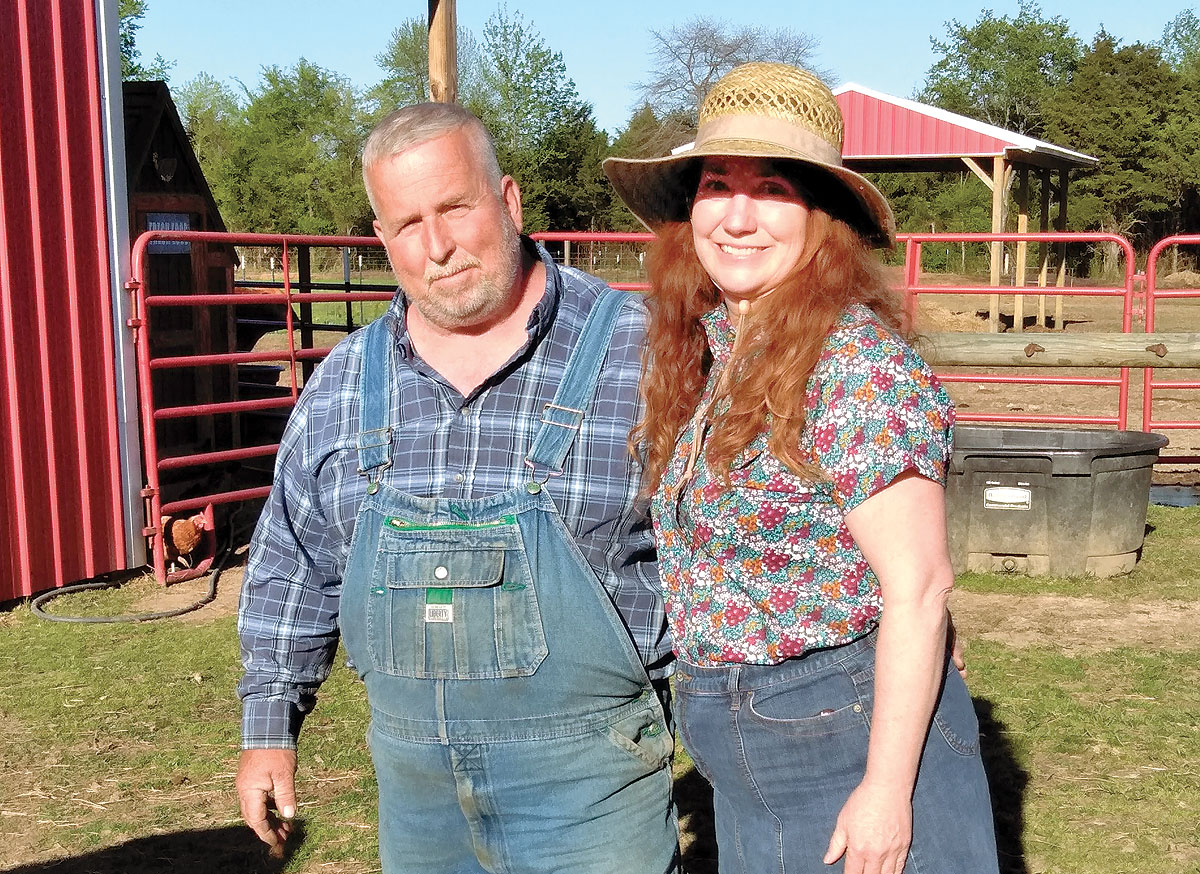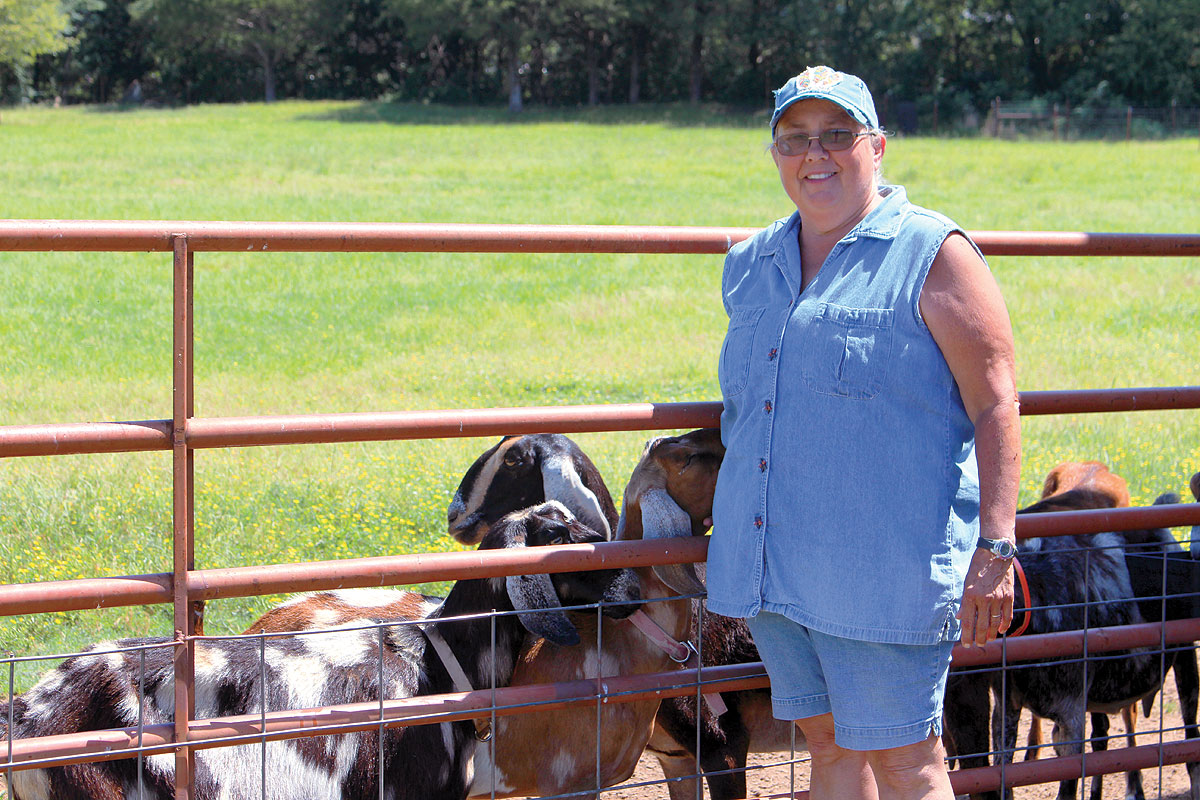 Melissa Melton says it took 30 years to fulfill her childhood wish of owning a farm
Melissa Melton says it took 30 years to fulfill her childhood wish of owning a farm
Melissa Melton considers herself a natural, simple person, so she wanted the name of her farm to reflect her personality.
At Melton Farm, she husband Robert have a small herd of registered Beefmaster and commercial cattle.
Melton Farm, established in 2015, consists of 56 acres equally divided into pasture and timber land.
“This place is very special to me because I am truly living my dream,” Melissa said. “I remember as a child setting goals for my life in the little house next door to this farm. One of my goals was to own a farm someday. I always tell my students that dreams really do come true because I am living mine. As I am reflecting on this, I have tears in my eyes because there are no limits when you have the power to make your dreams come true. It did not happen overnight, it happened 30 years later.
“My husband and I had the farmhouse built on the property 2012, but my mother moved to Providence from east Arkansas with my two siblings and I in 1977 after my father was killed in a farming accident. Her property joins Melton Farm, so in a sense it’s always been my home, even though it was owned by the Ware Family at the time.”
The couple are members of the Arkansas Cattlemens Association and Beefmaster Breeders United.
“I am especially partial to this breed because of the excellent maternal traits and diversity that derives from the roots (Brahman, Hereford and Shorthorn) of these cattle. Every calving experience is a surprise because you never know what the calf will look like. The calves can be bald faced, mottled, solid or sometimes striped with red being a dominant color. I am always anxious to see what the crop of calves will look like each spring and fall. The cattle are the highlight of my farm.”
They layout of the farm allows grazing and timber for the cattle to cool themselves during the summer. There are also beautiful red barns that store hay and livestock, and three ponds.
While Melissa might be a fan of her cattle, more than one species of livestock calls the farm home.
“I also have about 20 laying hens that generously supply the farm daily with fresh, tasty eggs. I do not market the eggs because I enjoy sharing a product from the farm with others in my family and community. I also have Nubian and Nubian cross goats in hopes of receiving rich and creamy milk for drinking, making cheese and soaps in the near future for marketing, and would love to start a poultry business as well.
“I provide good quality care for all of our livestock and it brings me joy to be able to raise a product from the farm for another family to enjoy as well.”
Melissa and Robert have been married 32 years. He works for B&G Pipeline Company as a heavy equipment mechanic and Melissa is a first-grade teacher.
“I love teaching first grade and bringing my farming experiences into the classroom to share with my students,” Melissa said. “So many of them come from farming families or have connections to someone who farms. They often bring farming culture into the classroom too.”
The couple has one daughter, 22-year-old Emily Ann, who is employed for B&G as well.
“Because my husband is often out of town, the farm work is all up to me. It’s not a hardship at all because I love taking care of the livestock and spending time in the barn cleaning stalls and sorting feed,” Melissa said. “I view it as quality time well spent for the mind, body and soul. Robert does anything needing to be done when he is here, like fence repairs or building corrals. He has experience, so he is good at it.”
Melissa admits being the primary operator of the family farm presents some challenges, especially when it comes to the cattle side.
“I have learned there is an art to trickery,” she said. “Beefmaster cattle are smart and do not forget easily. Once they are caught, they are looking for an exit, if there is not one, sometimes they create one.”
Like many farmers, last year’s drought also presented many challenges.
“The farm leases an 80-acre hayfield, but because of the dry summer, the field yielded slow growth, and the wet fall hindered the final cutting,” Melissa explained. “I felt like I had to hustle for hay all winter. Thanks to local farms and a good friend, I was able to pull through the winter. There were a couple of times the barn got really low on hay and I had to manage feeding cattle with square bales. Through that process I learned you can save money and there is less hay waste feeding square bales to cattle, but it is a lot of work. This summer we are doing more winter forage and will keep them on the grass a little longer.”
Being a teacher, Melissa presents lessons to her young charges, but sometimes the most important things in life can be learned right on the farm.
“It’s a challenge for me to patient,” she said. “When starting out small, it takes time to build a herd. Right now the farm has about 40 head, including calves. I love cattle and it is one of the best parts of farming for me. I am excited about what the future holds for Melton Farm and as for me, I am going to keep on dreaming.”







